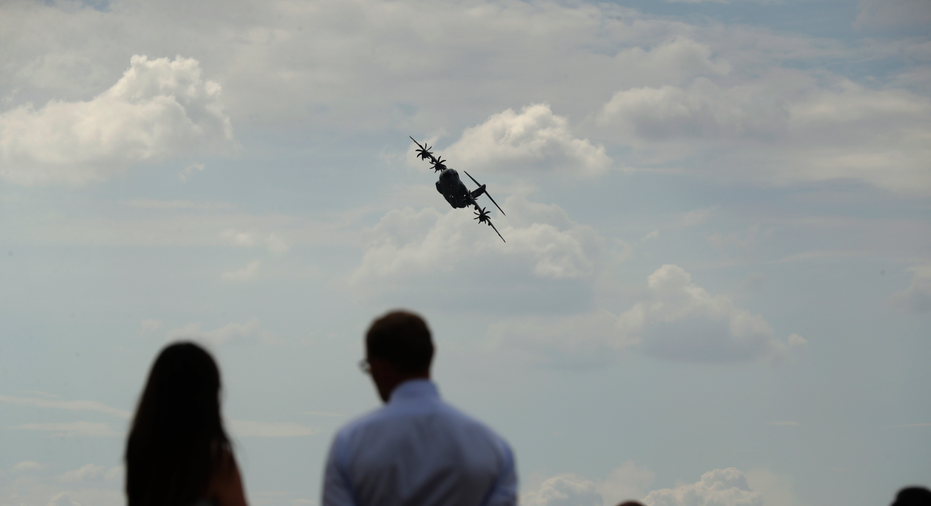Defense contractor Raytheon reaffirms its commitment to UK

LONDON – U.S.-based defense contractor Raytheon says it remains committed to its operations in Britain, even as other manufacturers warn that they may curtail investment because of delays in negotiations over the country's departure from the European Union.
Raytheon, whose roots in Britain go back more than 100 years, sees opportunities to expand its U.K. business, regardless of Brexit, said John Harris, chief executive of the company's international unit. Several other major firms, including Airbus and Jaguar Land Rover, have warned that the lack of certainty over Britain's future relationship with the EU could force them to leave, taking tens of thousands of jobs with them.
"We don't see any material negative impact with Brexit," Harris told The Associated Press. "We haven't since the vote was held a few years ago."
Harris spoke on the sidelines of the Farnborough International Airshow, a biannual trade show where billions of dollars of planes and parts are bought and sold. Analysts have suggested this year's event will be a blockbuster, amid growing demand for air travel and increased defense spending. On the first day alone, some $46.4 billion in deals were announced.
Raytheon U.K. employs more than 1,600 people who work on projects ranging from precision missiles to cybersecurity and intelligence.
The company has long-term relationships with customers and suppliers in Europe, and sees its presence in Britain as a "long play," not a short-term investment, Harris said.
"We're not policy makers," he said when asked about Brexit. "Our job is to understand the rules and to act accordingly."
Defense firms will be insulated from most of the incremental twists and turns of the Brexit process because their contracts are with governments that need their products for defense and security, said Howard Wheeldon, an aviation analyst at Wheeldon Strategic Advisory Ltd.
But that doesn't mean Brexit won't have consequences.
"Brexit could change long-term partnerships ... because certain governments will think they can do things on their own, or they don't need the British," Wheeldon said. "I think they will come unstuck because there's far more expertise, technology strength, here in the U.K. To undermine that — to think that you can do without, that you have all the expertise in other countries ... I think is a grave error of judgment."



















